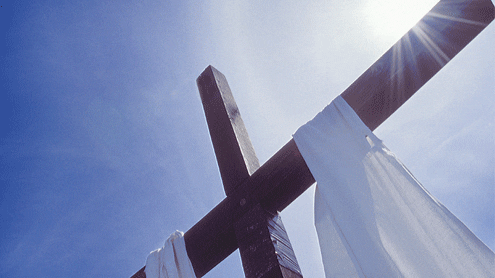By Robert Docter –
He came prepared!
The plan wasn’t formulated in some half-hearted world of unrealistic hope. He carried with him a sense of optimism and expectancy based on prior experience. He knew what he needed to achieve his goal. He assembled the skills necessary to accomplish it. He willed the will to attain it.
Some around him minimized his strategy, ridiculed his effort, and quietly prepared him for disappointment. After all–he was only a kid.
He was unfazed.
He was prepared–at the right place, in the right time, holding the right material, with the right mental set. He had the right stuff. He’d done almost the same thing before. He knew how to pull it off. He sensed that the demands of the situation would require a quick and spontaneous response. There was within him an alertness of mind, a tension of muscle, a relaxed readiness. He was poised for action and anticipated his moment.
From his spot, the drama lay spread before him as if on green felt. Isolated men in gray, standing still, then moving together, choreographed, synchronized–bending, standing, moving left and right–their tension as visible as the light, night fog silently encased by human masses, writhing, pleading, calling, cheering.
Where all eyes were focused, a man in black took from his pocket a new, small, white object and lofted it to a man in gray–the one in the middle of the circular path in the form of a square and called a diamond. The hard, round ball was shiney and slippery–its bright, red stitching clean and brave–the brazen, black signature printed above the word “President” leaping from its surface.
He spit on it.
The large, oversize piece of leather padding he wore as a glove slipped naturally from his left hand to his wrist as his fingers attacked the ball. Suddenly, the ball wasn’t new anymore–not shiney, not even slippery. The red stitching receded to a place of utilitarian function, and the name above the word “President” withdrew in the spit to a place of quiet distinction.
The man in the middle, called a pitcher, once again climbed his thirteen inch hill, readied his feet and glared at the armored man assigned to catch his thrown ball. Then, he stretched his hands high as if beseeching some heavenly being for a dispensation of grace. The four men in gray, spread in a circle behind him, with remarkable symmetry, bowed together to earth, bent at the waist, legs flexed and spread, hands almost touching the ground.
A man previously ignored, not in gray but in a white pinstripe suit, stood sixty feet, six inches away, menacingly waving a brown, round cylindrical club, two and one-half inches in diameter at its fattest point and weighing around 42 ounces. The pitcher swung his arms and coiled his body and fired the ball towards the man with the club. It whistled by him, crossing one of the corners of the flat piece of white rubber shaped like two squares forced together and called a “plate.”
The man in black gyrated his arm and was heard to utter a sound. The man with the club glared at him as the armored catcher returned the ball to the pitcher. Once again the dance began, the choreography identical, the ball spinning toward the plate. This time, the man with the club swung it in a vicious, rapid ark and connected with the ball as it crossed the plate.
All heads turned toward what was called right field. All eyes watched its flight. The man in the middle of right field raced toward the blue wall and leaped as the ball descended toward his glove encased hand.
At that moment–the boy who was ready–the youngster who was prepared–sprang from his seat–his polished, black glove on his left hand. A competition ensued between the man in gray and the boy with the black glove. The fielder’s leap could not match the height of the boy, and he came down empty handed. The ball hit the black glove and was pulled off the field of play by the boy–only to carom away from him to someone else.
On the field rage and hilarity combined, depending on the color of uniform worn. In the seats, the feelings were combinations of rapture and disappointment. As for the boy, millions examined the ethics of his spontaneous action, and those around him for miles and miles called him a hero. Some in more distant locations said he wrecked the game.
There are lessons to be learned: (1) life presents many opportunities, but we must be ready for them; (2) some opportunities should be seized and some not; (3) when we make choices often there are unexpected outcomes; (4) our responses to seemingly trivial events can have far reaching consequences; and (5) the evaluation of the act by others depends on their point of view.











